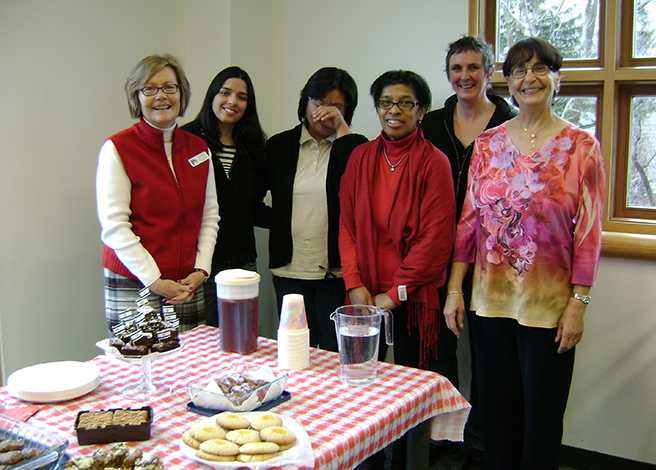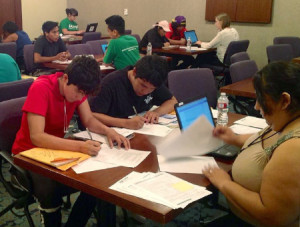Challenges to good service
Historically, libraries in the U.S. have been focused on service to immigrants, whether this meant providing them with information, education, and resources, or "Americanizing" them as a form of social control. Wherever immigration occurs, anti-immigration sentiment will also arise from the community people are moving into. The public may influence the library, in turn, or librarians may share these sentiments and let it affect their work. When resources are tight or tensions are high, libraries may eliminate services such as multilingual collections or bilingual staff in order to provide for what they may see as their citizen community (Garcia-Febo, 2007). Libraries (such as the Denver Public Library in 2005) may face challenges to materials such as fotonovelas that appeal primarily to Latin American users, as others fear that including such collections may draw undocumented people to the library (Richardson, 2006).
Lack of diversity among library staff can be an issue in providing service. For one thing, users or potential users may not see anyone like them among library staff and could feel like they do not belong. Another potential issue with staff is the language barrier that may be present when new immigrants do not speak English, and staff do not speak their language. Also, staff who are not diverse may not feel connected with that side of their community, and will have no desire to change the way their library functions or expand to new programs and services that will reach different people (2007).
Undocumented people may not feel that the library is a safe place for them if they suspect that their backgrounds will be investigated if they sign up for library cards or programs (Alvarez, 2015). In some cases, as mentioned previously, those who wish to obtain library cards are required to provide a government-issued ID, which is an exclusive policy not only to undocumented people but to those without a driver's license for any reason, including some senior citizens and homeless individuals. Any other policy which limits the service population or imposes unncessary restrictions or invasions of privacy is a barrier to service. Many, such as one signed in Arizona in 2003, require citizenship status to be checked for anyone seeking public services, including emergency medical care (Richardson, 2006).
Important reference services to immigrants- Legal advice: Libraries may be where immigrants turn to find out more about their legal stances and chance of gaining citizenship, so many public libraries are becoming places where non-attourneys can become certified to represent people in court (Dankowski, 2015).
- Citizenship information: Offering citizenship classes is one way to help those who are on the path to seeking citizenship; pamphlets in various languages in the ready reference section can help those who are not as far along, and training staff to answer common legal questions pertinent to deportation and human rights may be advisable.
- Language classes: Adult literacy classes, conversation hours, dictionaries, bilingual storytimes.
- Community Connections: As community centers, libraries can connect immigrants and refugees with new friends through classes, activities, and book clubs (Diaz, 2016). Libraries should partner with local agencies in order to learn more about their communities, but also so they have somewhere to refer people who are seeking services outside of the library's scope (ALA, n.d.).

The Newcomers' Book Club at the Rochester Hills Public Library (via Programming Libarian)
